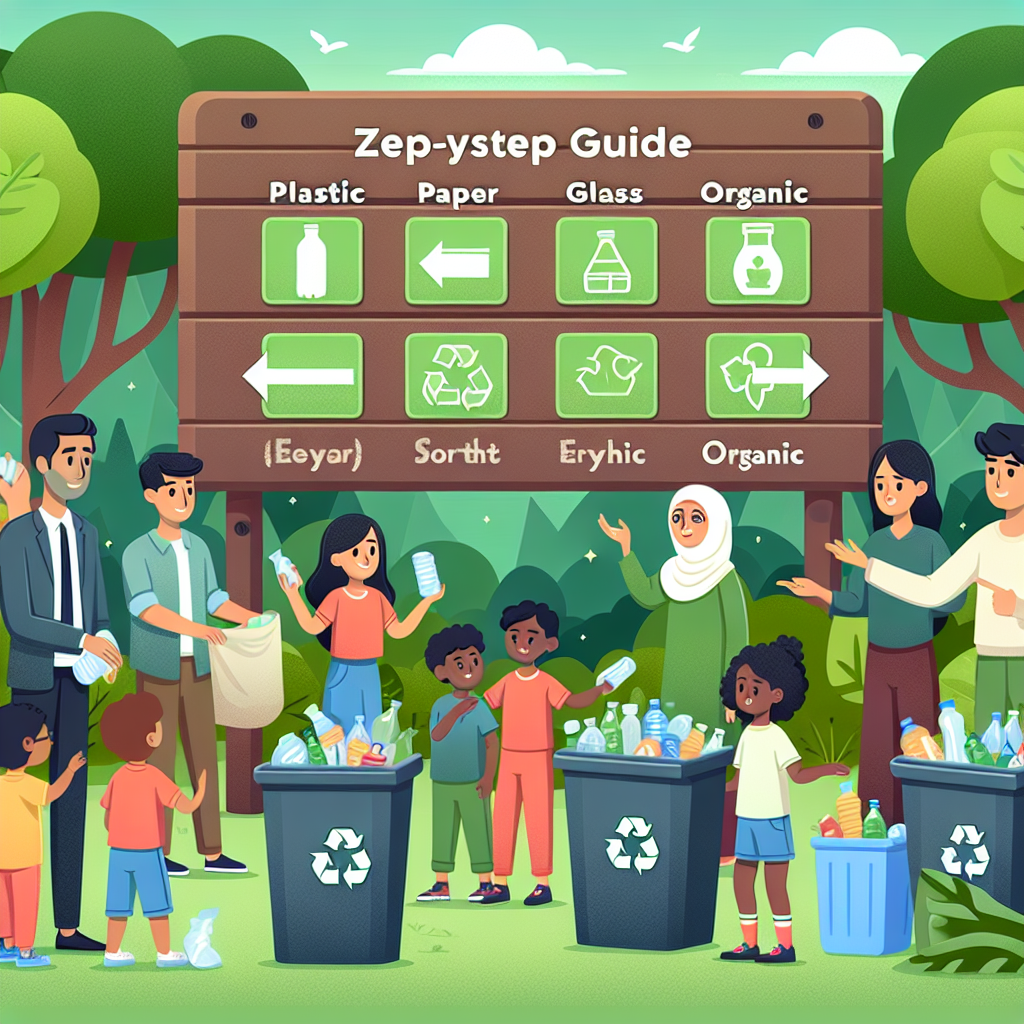-
Table of Contents
- Introduction
- The Zero Waste Concept
- Understanding Zero Waste
- The Benefits of Zero Waste
- Getting Started with Zero Waste
- Awareness and Mindset
- Refusing and Reducing
- Reuse and Repurpose
- Recycling and Composting
- Zero Waste in Indonesia
- The Current Waste Management Situation
- The Role of Zero Waste in Indonesia
- Community Engagement and Education
- Conclusion
Introduction

Zero waste is a concept that has gained significant attention in recent years as a sustainable lifestyle choice. It involves reducing waste generation and minimizing the use of resources to create a more environmentally friendly and sustainable society. In Indonesia, where waste management is a pressing issue, the zero waste concept has the potential to make a significant impact. This article will explore the concept of zero waste and provide practical tips on how to start implementing it in daily life.
The Zero Waste Concept
Understanding Zero Waste
Zero waste is a philosophy that aims to redesign the current linear economy, where products are manufactured, used, and then discarded, into a circular economy. The goal is to eliminate waste by reusing, recycling, and composting materials, thereby reducing the need for extraction of new resources and minimizing pollution.
The Benefits of Zero Waste
Implementing a zero waste lifestyle offers numerous benefits for individuals, communities, and the environment. By reducing waste, we can conserve natural resources, reduce pollution, and mitigate climate change. Additionally, embracing zero waste can lead to financial savings by avoiding unnecessary purchases and focusing on reusing and repurposing items.
Getting Started with Zero Waste
Awareness and Mindset
The first step towards zero waste is developing an awareness of the waste we generate and the impact it has on the environment. By understanding the consequences of our actions, we can cultivate a mindset that values sustainability and resourcefulness.
Refusing and Reducing
One of the key principles of zero waste is refusing unnecessary items and reducing consumption. This can be achieved by adopting a minimalist approach and only purchasing what is truly needed. By refusing single-use plastics, excessive packaging, and disposable products, we can significantly reduce waste generation.
Reuse and Repurpose
Another important aspect of zero waste is reusing and repurposing items. Instead of throwing away items that are no longer needed, we can find creative ways to give them a new life. This can include upcycling old clothes, repurposing glass jars for storage, or donating unwanted items to others who can use them.
Recycling and Composting
While recycling is an essential part of waste management, it should not be the sole focus of zero waste efforts. Recycling should be seen as a last resort after reducing, reusing, and repurposing. Additionally, composting organic waste can divert a significant portion of waste from landfills and create nutrient-rich soil for gardening.
Zero Waste in Indonesia
The Current Waste Management Situation
Indonesia faces significant challenges in waste management. Rapid urbanization, population growth, and limited infrastructure have resulted in inadequate waste collection and disposal systems. As a result, a large portion of waste ends up in rivers, oceans, and landfills, causing environmental degradation and health hazards.
The Role of Zero Waste in Indonesia
The zero waste concept has the potential to address Indonesia’s waste management issues effectively. By reducing waste generation and promoting recycling and composting, zero waste can help alleviate the strain on existing waste management systems. It can also create opportunities for job creation and economic growth through the development of recycling and upcycling industries.
Community Engagement and Education
To successfully implement zero waste practices in Indonesia, community engagement and education are crucial. Local governments, NGOs, and individuals need to work together to raise awareness about waste management, provide resources and infrastructure for recycling and composting, and promote sustainable consumption habits.
Conclusion
In conclusion, the zero waste concept offers a sustainable solution to Indonesia’s waste management challenges. By adopting a zero waste lifestyle, individuals can contribute to conserving resources, reducing pollution, and creating a more sustainable future. Starting with small steps such as refusing single-use plastics, reusing items, and composting organic waste can make a significant difference. With collective efforts and community engagement, Indonesia can move towards a zero waste society, benefiting both the environment and its people.
